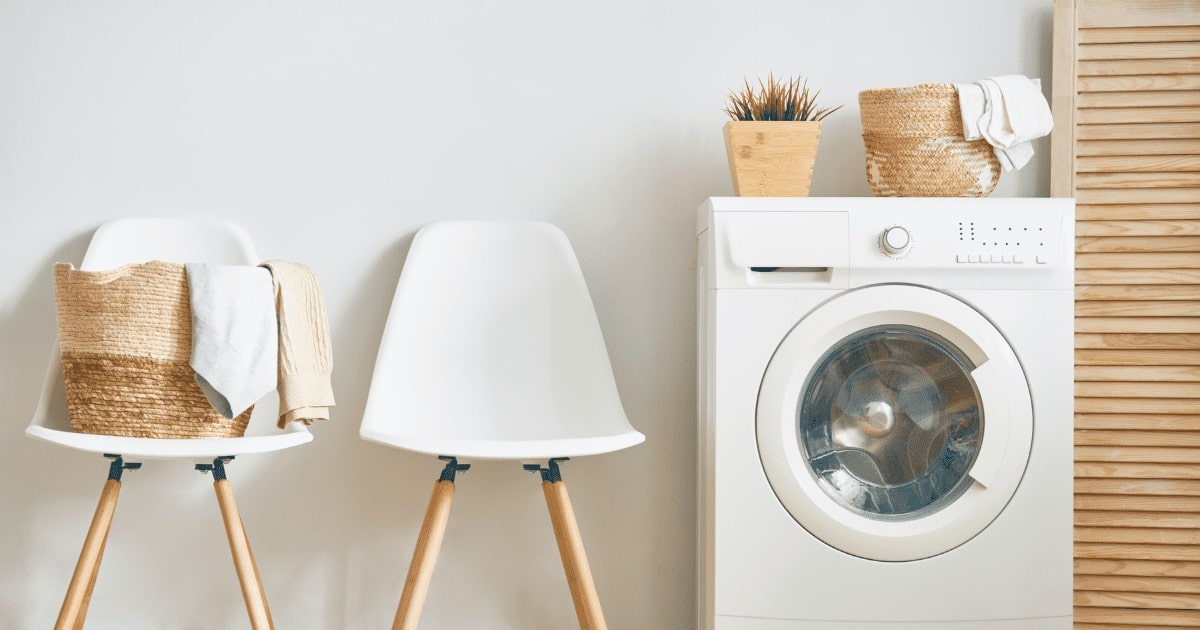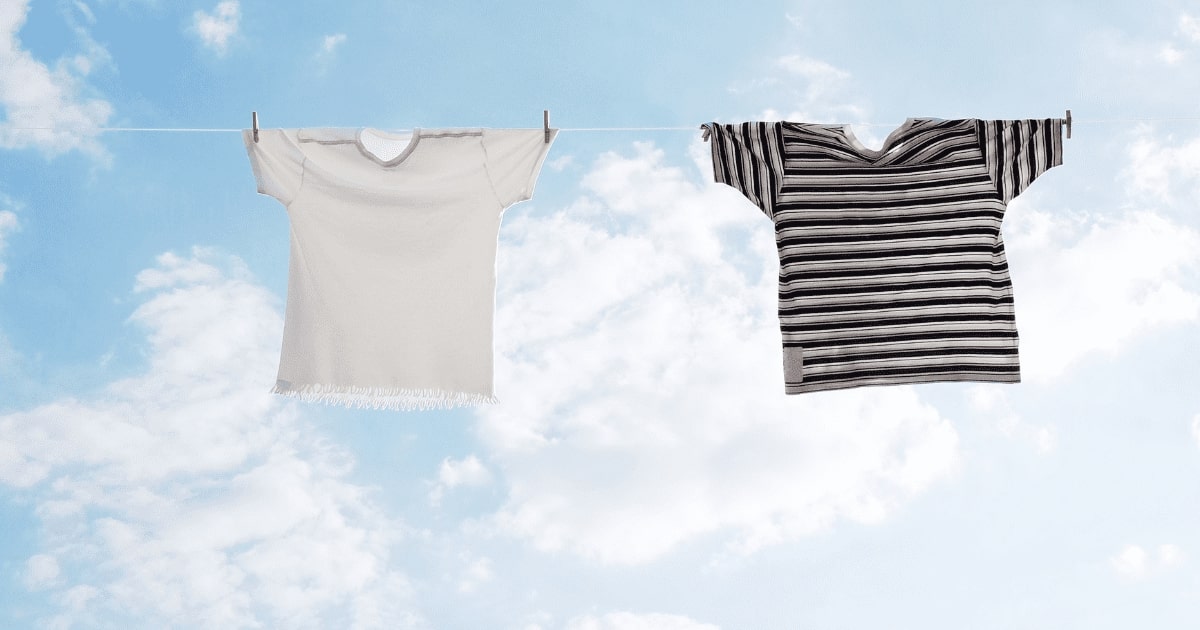If you're wondering where you can save on electricity, you might want to start with your laundry. Washing machines and dryers are among the most energy-consuming appliances in our households. Since most of us do laundry multiple times a week, it makes sense to consider ways to save on this task.

How Much Energy Does a Washing Machine Consume?
The energy consumption of your washing machine depends on its energy efficiency rating. A washing machine with an A+++ rating consumes an average of 96 kWh per year, costing you around $15-$40 annually for three loads per week. With an A-rated machine, you consume approximately 160 kWh per year, resulting in an annual cost of $22-$65, depending on electricity prices.
How Much Water Does a Washing Machine Consume?
On average, a washing machine uses 30-60 liters of water per wash. Older models may consume up to 90 liters. For three loads per week, washing clothes can cost you around $22-$45 per year. If you're using an older machine, the water cost alone can amount to $65 annually.
How Much Does Laundry Cost?
Considering the cost of electricity, water, and laundry detergent, doing three loads per week can add up to around $55-$95 per year. However, using eco-friendly laundry alternatives like the Ecoegg, which costs approximately $0.30 per wash, can significantly reduce your expenses. With the Ecoegg, your total laundry cost for the year would be around $95-$170.
10 Tips to Save on Laundry
Now, let's dive into practical tips to help you save money and energy while doing your laundry:
1. Wash in Cold Water
Switching from hot to cold water can cut your energy consumption in half. Cold water is suitable for clothes that aren't heavily soiled but may have sweat odors.
2. Wash Normally Soiled Laundry at 30 Degrees Celsius
Washing at 30 °C reduces energy consumption by 38% compared to washing at 40 °C. It also extends the lifespan of your clothes and textiles, as higher temperatures can damage them.
Tip: How to properly wash nanoSPACE bedding for allergy sufferers? You will find out everything you need in the article.
3. Use Detergents Suitable for Cold Water Washing
Ensure you use laundry detergents specifically designed for low-temperature washing. Eco-friendly options like the Ecoegg laundry egg, which utilizes mineral pellets, work effectively in cold water.
#produkty#https://www.nanospace.store/ecological-detergents//
4. Avoid Running the Washing Machine Half-empty
The washing machine consumes nearly the same amount of energy regardless of the load size. Wait until you have a full load before starting a wash.
5. Wash Only Necessary Items
Don't throw every piece of clothing into the laundry basket after one use. Consider airing out clothes that are not heavily soiled, such as bras, shirts, trousers, skirts, or dresses. This saves money, the environment, and prolongs the lifespan of your clothes.
You can usually comfortably wear a sweater, jacket, or hoodie for a whole week if you wear a T-shirt or blouse underneath. Think about what you wash, and you'll not only save money and the environment but also make your clothes last longer.
#produkty#https://www.nanospace.store/fashion-and-clothing/
Tip: How does sportswear work against odor? You will find out in the following article.
6. Air Dry Your Laundry
Opt for air drying your clothes on a clothesline or drying rack instead of using a dryer. Dryers are energy-intensive appliances and can also cause wear and tear on your clothing. Take advantage of the sun and wind to dry your clothes naturally.
Tip: Read the article about nanoSPACE by LADA clothing - Once you've tried nano clothing, you don't want anything else.
7. Pre-treat Stains
Instead of relying on high-temperature washing to remove stains, pre-treat them before washing. Soaking the stained area and using products like baking soda or gall soap can effectively remove stains, saving water, energy, and detergent.
Tip: Try an innovative ecological detergent in strips that can also deal with stains - Wave washing strips.
#produkty#https://www.nanospace.store/search/?string=Wave+washing+strips.
How to Remove Stains from Laundry Based on the Type of dDirt?
Grandma's tips are sometimes truly the best, so try these tips for stains based on the type of dirt:
| Sweat |
Soak in water and use lemon juice or a mixture of table salt and 2 tablespoons of vinegar. |
|
Blood |
Immediately after staining, sprinkle salt on the stain and soak in cold water. |
|
Grass |
Clean the stain with vinegar and a sponge. If the stain persists, try using rubbing alcohol. |
|
Tuk |
Use dishwashing detergent or clean the stain with a paste of baking soda and hydrogen peroxide. |
|
Makeup |
You can use gall soap or a paste of baking soda and water. Rub the clothing together in your hands afterward. |
|
Fruit |
Lemon juice should be sufficient for fruit stains. Drip lemon juice on the clothing and then rinse. |
|
Wine |
Just like with blood stains, use salt immediately after the spill. Let the salt absorb the moisture for 20 minutes, then wash. |
|
Coffee and tea |
Try white vinegar, table salt, or lemon juice. |
|
Chocolate |
Dissolve some salt in lukewarm water and then rub the stain with saltwater. Soak, let it sit for an hour, and then wash. |
|
Oil |
Try using dish soap; gall soap and a paste of salt and water can also help. |
|
We have several tips for you: you can try the classic method, which is a cup of lukewarm water with vinegar, salt with a teaspoon of lemon juice, or create a paste with baking soda and water. Always let it soak and then wash. |
8. Choose an Energy-efficient Washing Machine
When replacing your washing machine, select one with a low energy consumption rating. Look for machines with an energy efficiency rating of A, which typically consume around 1 kWh of electricity and 40 liters of water per load.
Tip: Does your washing machine need general cleaning? Try the ecological tablets for clean washing machines, which removed dirt and the rest of the washing powder.
9. Skip Fabric Softeners and Bleaches
Instead of using fabric softeners, which can be expensive and harmful to the environment, try natural alternatives. Lemon or baking soda can whiten and brighten your clothes effectively. Sunlight exposure can also naturally bleach fabrics.
10. Utilize Off-peak Electricity Rates
If possible, take advantage of lower electricity rates during off-peak hours. Consider running your washing machine during nighttime or using solar panels or heat pumps for water heating.
By implementing these tips, you can significantly reduce your laundry expenses, conserve energy, and contribute to a sustainable future. Start incorporating these practices into your laundry routine and enjoy the benefits of saving money while protecting the environment.



